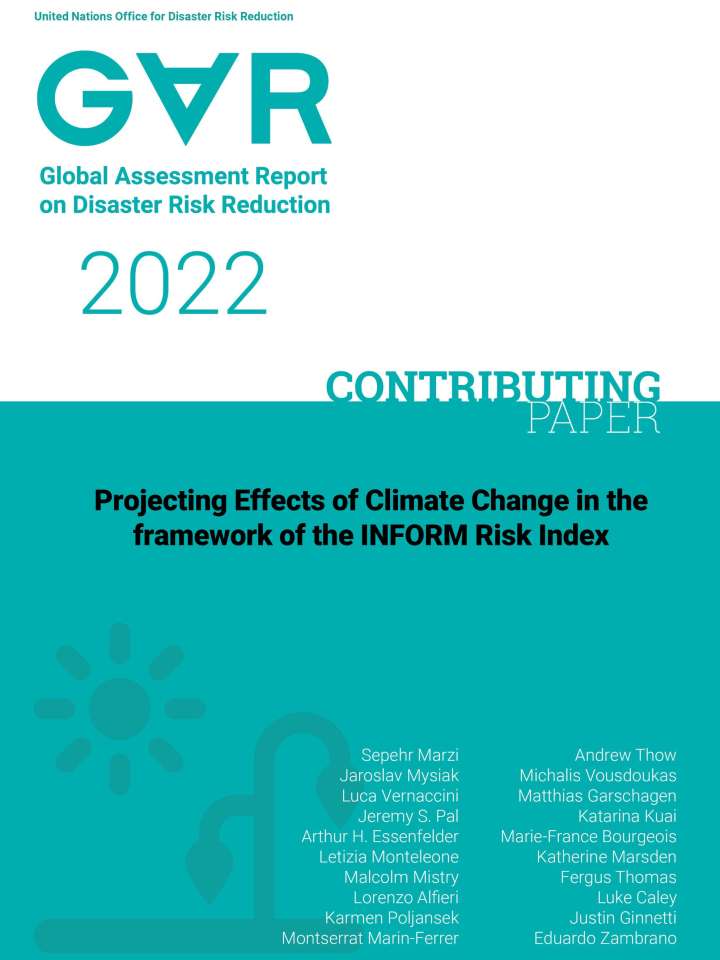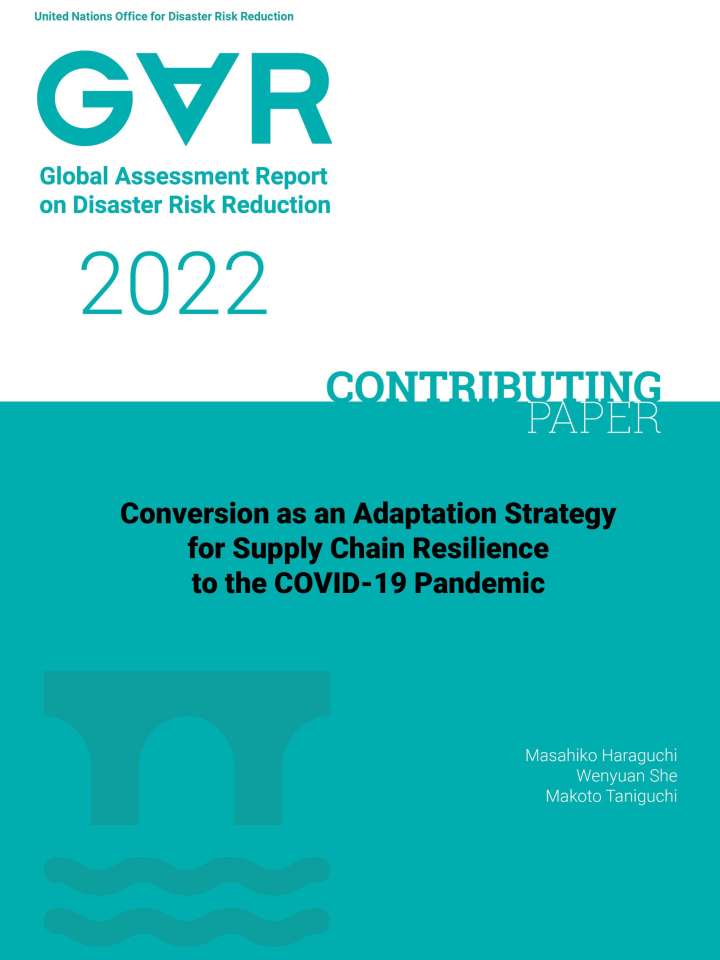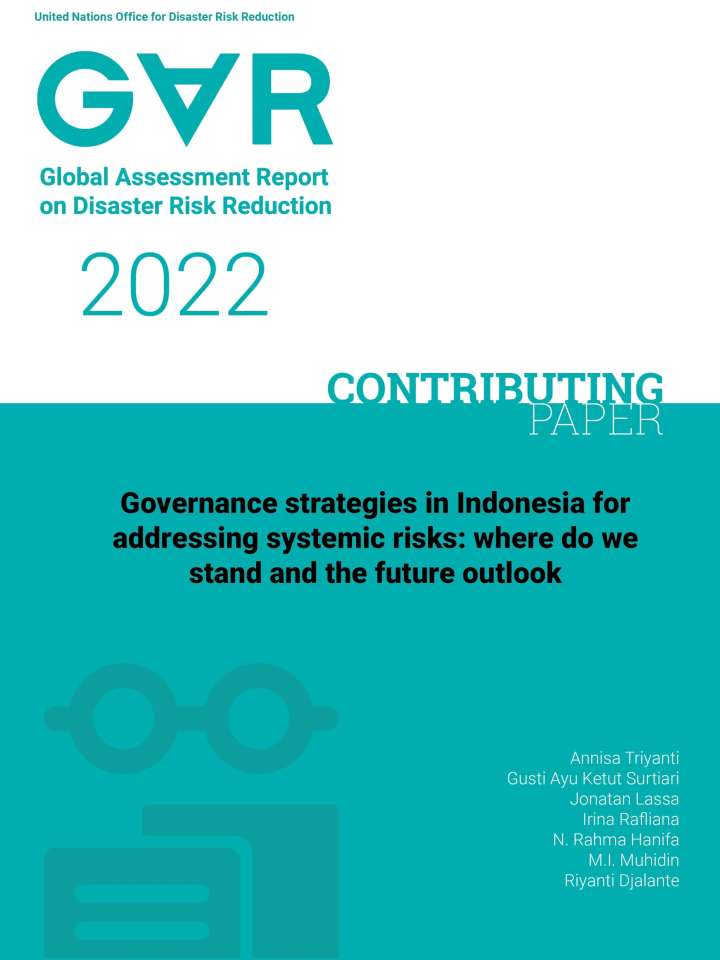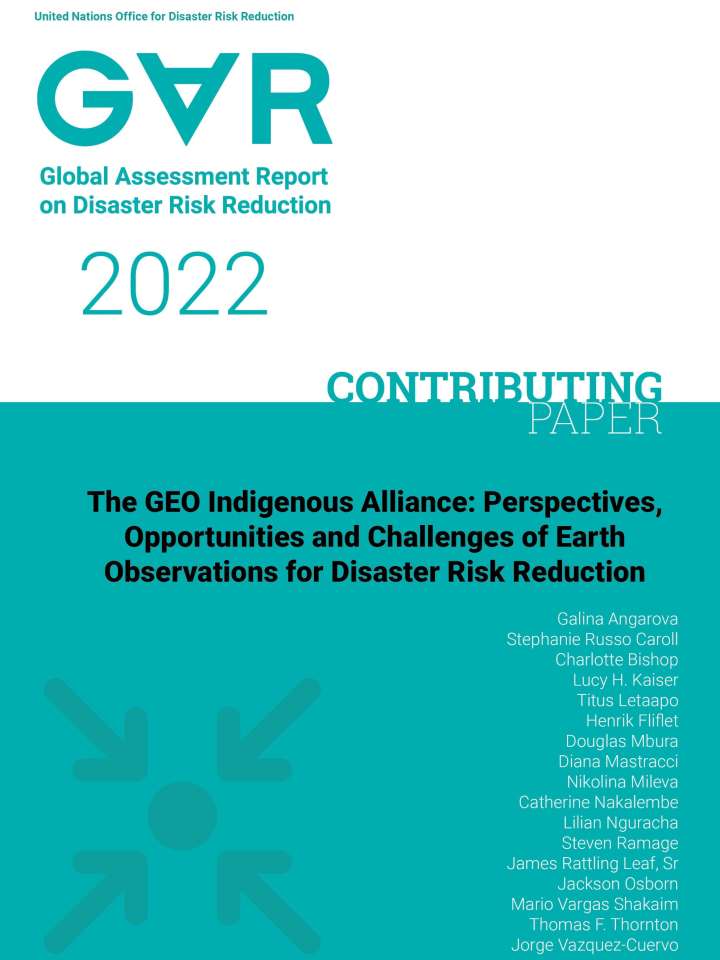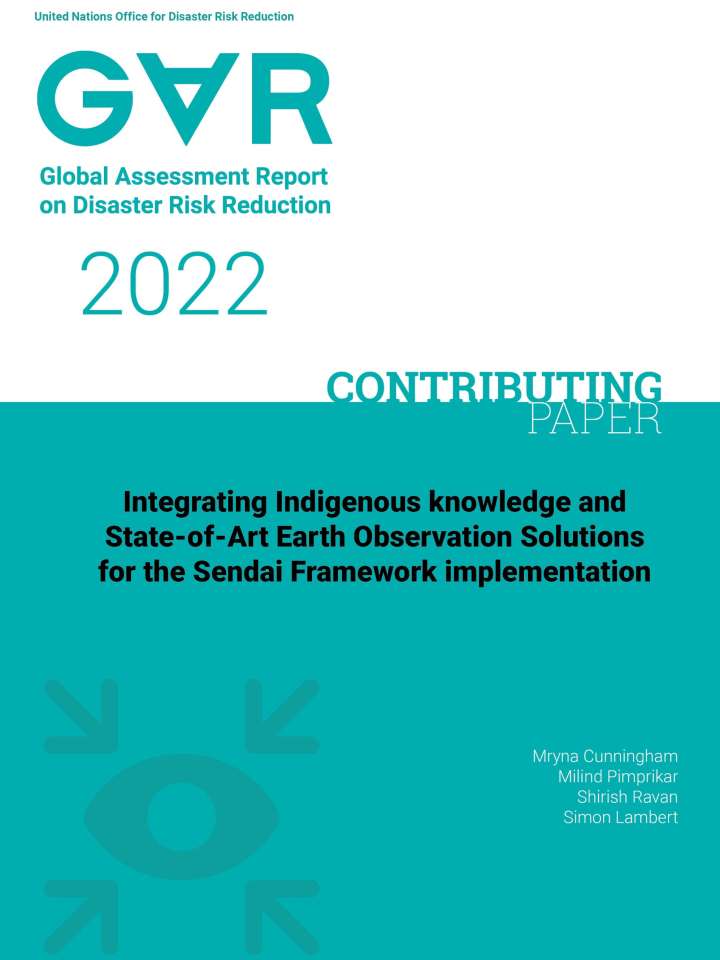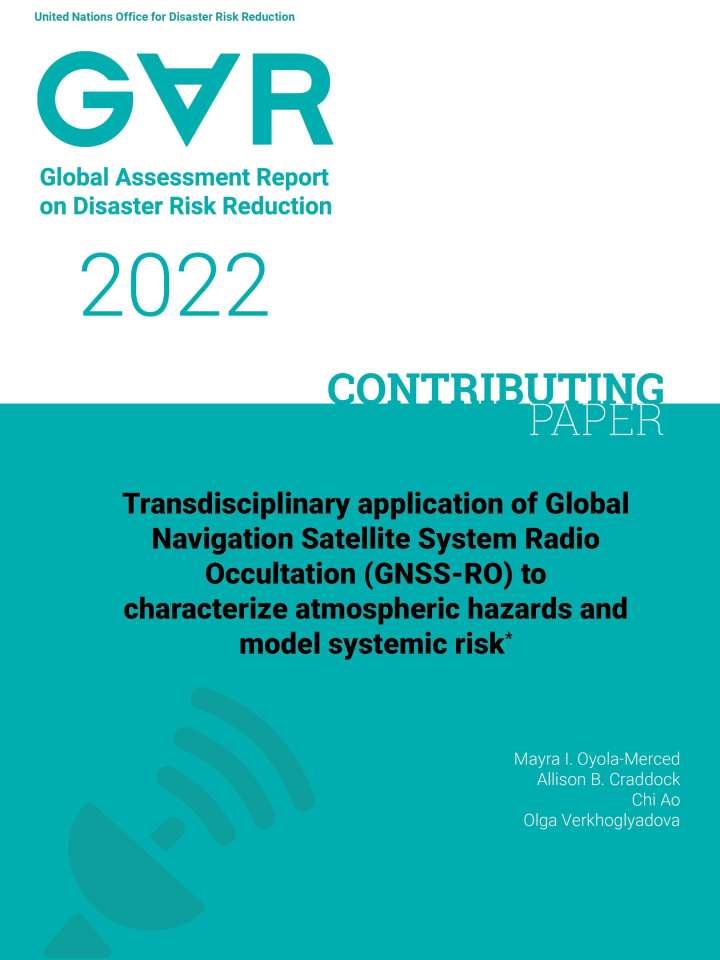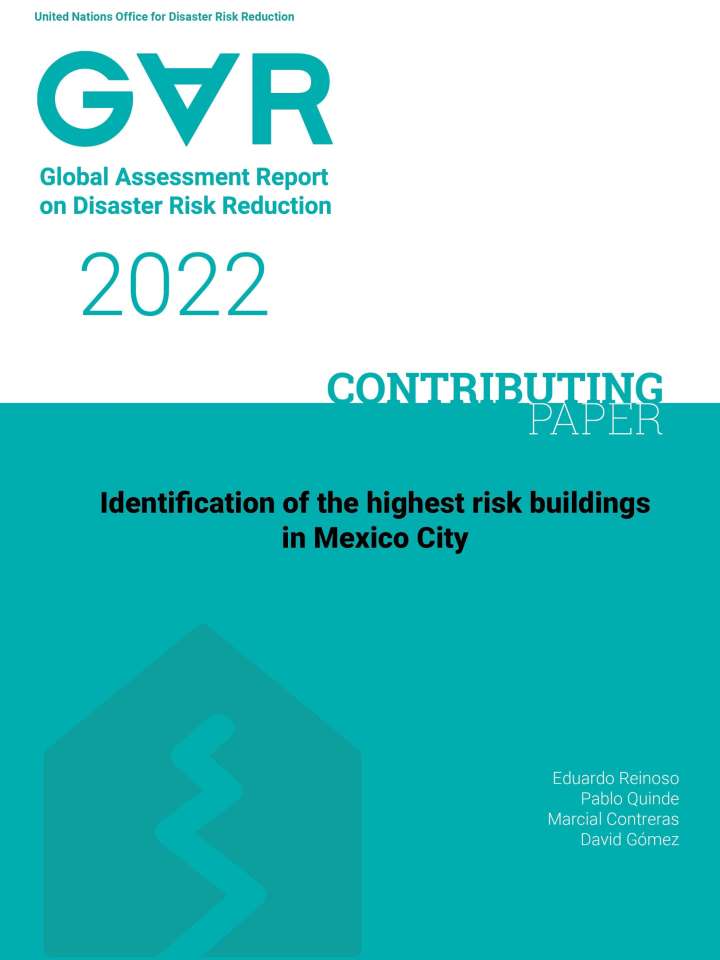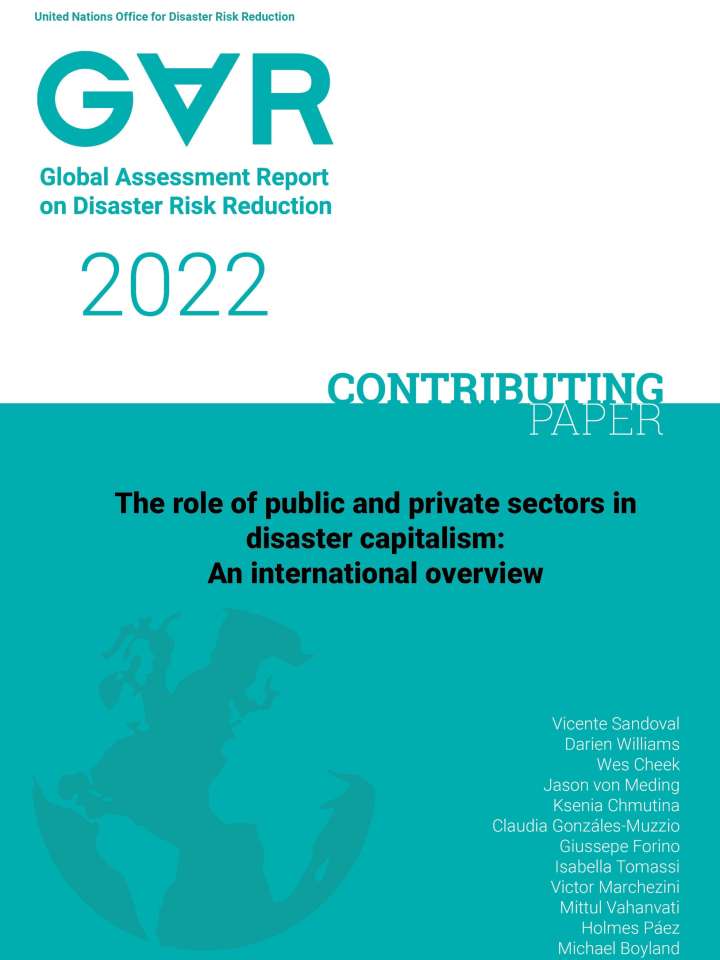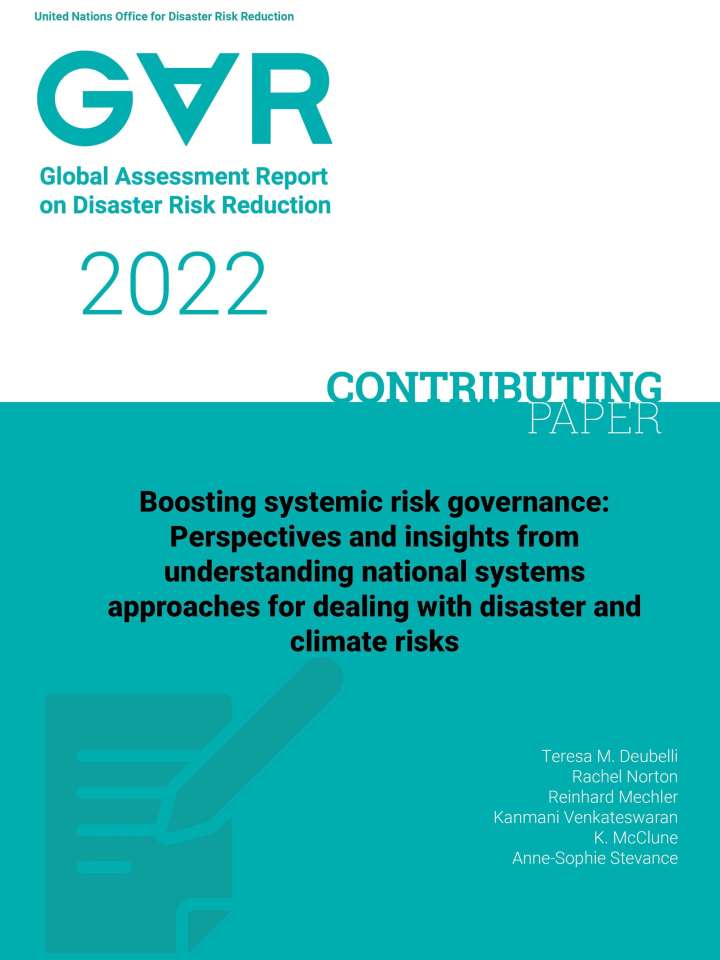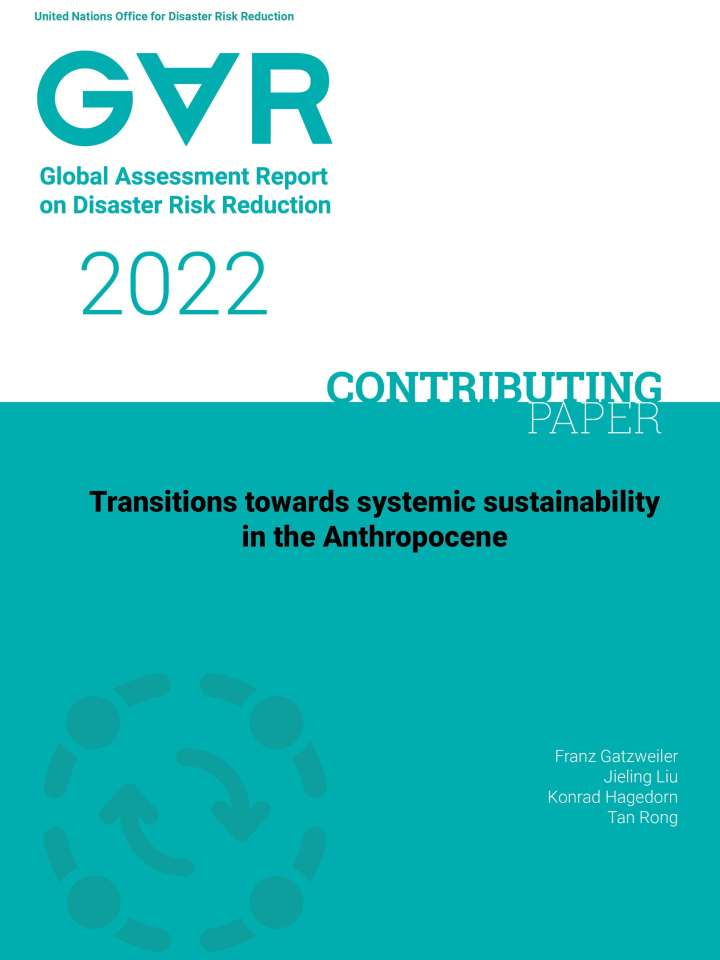GAR2022: Contributing Papers
The central question for this Global Assessment Report on Disaster Risk Reduction 2022 (GAR2022) is how governance systems can evolve to better address the systemic risks of the future. Developed through an extensive set of partnerships, the GAR is both an ongoing process of generating evidence, knowledge and policy engagement, as well as an opportunity to showcase trends and report on progress. This page contains the Contributing Papers to the GAR2022.
